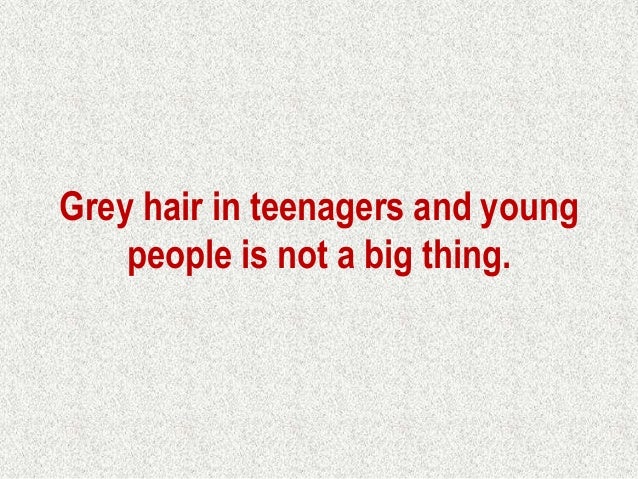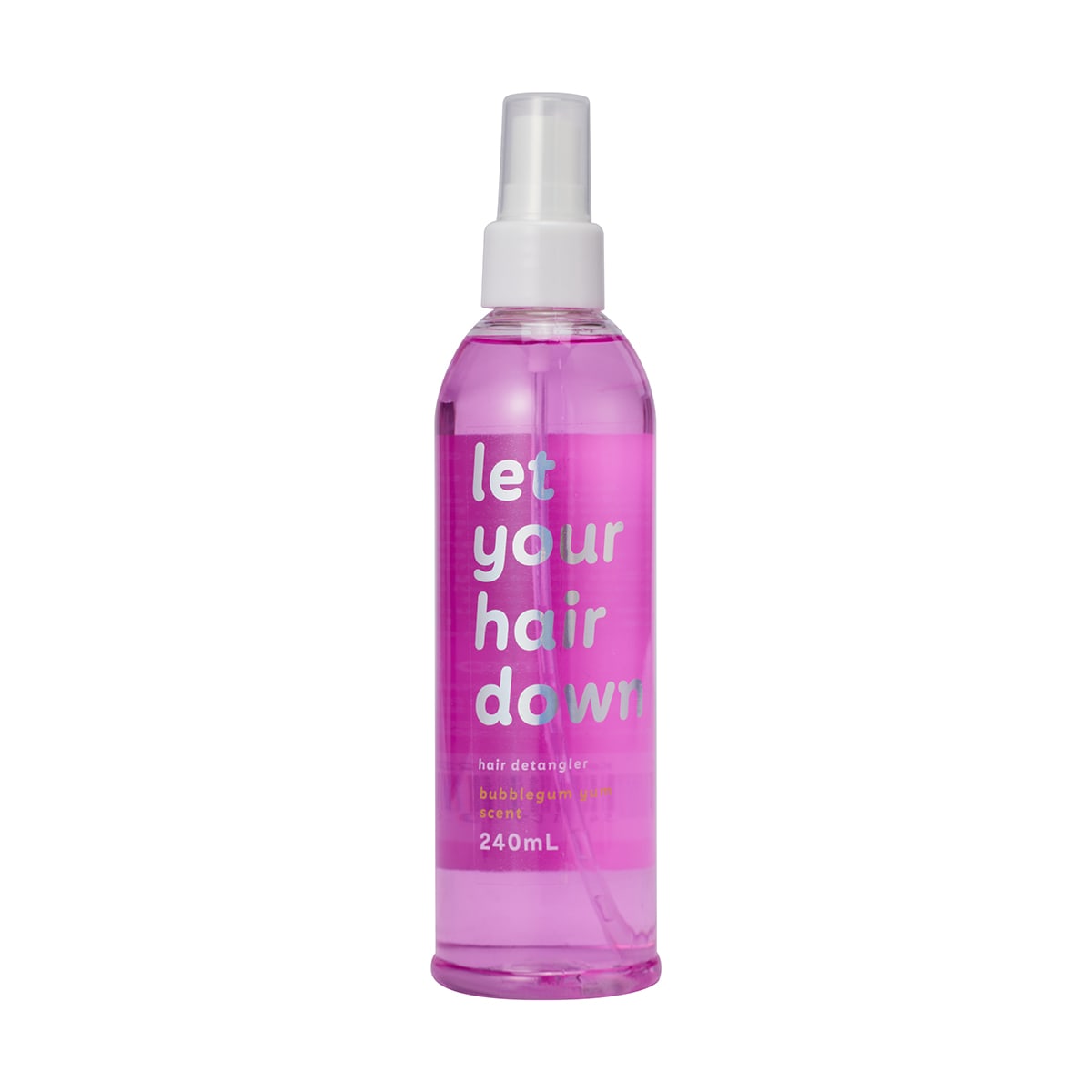Table Of Content
- Your hair turns gray when color-producing cells stop producing pigment.
- Maintaining gray hair isn’t the same process as before
- More on Hair Loss
- BONUS! Sign up now and get a FREE copy of theBest Diets for Cognitive Fitness
- © 2024 Harvard Health Publishing® of The President and Fellows of Harvard College

Grey hair at an early age can also indicate that you’re dealing with a vitamin B-12 deficiency. This nutrient assists with the formation of healthy red blood cells which carry oxygen to the cells including those in your hair. A deficiency can affect this process and lead to lower melanin production.
Your hair turns gray when color-producing cells stop producing pigment.
Grey Hair - Study Could Explain Why Some Guys Go Grey Prematurely - Men's Health
Grey Hair - Study Could Explain Why Some Guys Go Grey Prematurely.
Posted: Fri, 04 May 2018 07:00:00 GMT [source]
Researchers at the Mayo Clinic in Rochester, Minnesota, also suggest some causes of premature hair graying are reversible. In a 2018 article published in the International Journal of Trichology, they noted that a deficiency of vitamin B12 can cause premature graying, which could be reversed through supplements. Research has found a link between cigarette smoking and the onset of gray hair before age 30. Specifically, smoking may cause nicotine to build up in the hair follicles, which affects hair pigmentation. Protein deficiency may cause your hair to lose its pigment, as well.
Maintaining gray hair isn’t the same process as before
It comes with a no-mess, easy-to-use, twist applicator so you can DIY your gray hair dye job. Luckily, there are some great DIY permanent hair dyes on the market and at-home hair gloss treatments that you can turn to for this. We love L’Oréal Paris Excellence Creme Cool Supreme Permanent Gray Coverage Hair Color, which is specifically formulated for gray hair coverage and even colors the most stubborn grays. L’Oréal Paris Superior Preference Fade-Defying Shine Permanent Hair Color also offers rich, luminous color that resists fading for up to eight weeks. So, now that you know the reason behind those silver strands of yours, you may be wondering if there’s anything you can do to stop them.
More on Hair Loss

This one is a given not only for hair health but for your overall health as well. Among other negatives like cancer and heart disease, smoking has the same accelerated aging effect on your hair that it does on your skin. There's extensive research that shows smoking is correlated with prematurely graying hair in people of all age groups. Some contributing factors, like stress or certain health conditions, can cause many people to notice gray hair in their 20s.
Can You Prevent Gray Hair?
That’s partly because of a gradual decline in the number of stem cells that mature to become melanin-producing cells. The cells may wear out, become damaged, or lose the support systems meant to keep them working. Genes are also a factor, since they help control melanin production. It can be a shock to find your first gray hairs on your head, especially if you’re only in your 20s. But women’s expert Dr. Kirtly Parker Jones says a few gray hairs is perfectly normal, even for women in their late 20s and early 30s. Find out what is normal, and what is not, when it comes to signs of "wisdom" in your hair.
The odd life of melanocytes
In general, gray hairs happen when melanin (natural pigment or color) stops forming. In general, 74 percent of people aged 45 to 65 will have gray hair with an intensity of about 27 percent, according to a 2012 survey in the British Journal of Dermatology. Here are the reasons why your hair might be turning gray sooner than you’d like. Historical accounts claim jailed British statesman Sir Thomas More and French queen Marie Antoinette went white overnight while awaiting execution. While the function of hair color in humans is still debatable, it’s undeniable that over the years we’ve used it as an aesthetic tool and it has played a role in self-image. Trying to solve the puzzle of graying hair is as old as history.
How To Care For Gray & Graying Hair From The Pros mindbodygreen - mindbodygreen
How To Care For Gray & Graying Hair From The Pros mindbodygreen.
Posted: Mon, 26 Sep 2022 07:00:00 GMT [source]
An essential daily guide to achieving the good life
Injectable cortisone may also help regrow hair lost to certain conditions. On top of its gray or silver color, these hairs can also be a different texture. "Gray hairs tend to be coarser and drier than your natural hair color," she says.
On the whole, it’s important that you speak with your doctor about any symptoms you’re experiencing. A dermatologist can provide a proper diagnosis, and select a personalized treatment that will help restore health to you hair and scalp. It can be long and wavy, short and straight, frizzy and unmanageable, or smooth and shiny. Hair comes in many different lengths, styles, colors, and textures.
© 2024 Harvard Health Publishing® of The President and Fellows of Harvard College
To treat greasy hair, try washing with a gentle shampoo that is specially formulated to control sebum. When hair loss is related to a medication, stopping the drug usually prevents further hair loss, and the hair will eventually grow back. Hair also tends to grow back after most illnesses, radiation therapy, or chemotherapy. Wearing a wig or hat can hide the hair loss until the hair returns. Hair transplants are a more permanent hair-replacement solution. "You can read that certain vitamins or supplements can delay premature graying, but there is no good science to back these up," said Dr. Rose.
So, what causes gray hair, why do some of us start going gray earlier than others, and how should you care for gray hair? With the help of Shari Marchbein, MD, we're answering the most common questions about going gray, along with how to care for naturally gray hair. Early gray hair may not mean anything other than your genetics are kicking in. However, graying can happen for other reasons as well, including stress. She calls the early graying in our family “the Spencer gene,” which helps me feel close to the women who came before me.
The following factors can contribute to a reduction of your melanin production, causing you to go gray prematurely. You can also use temporary at-home coloring techniques to disguise roots. Mincho Pacheco, master hairstylist and colorist at James Joseph salon, recommends using a little bit of makeup to cover grays. Smoking, on the other hand, has been found to have a significant relationship with developing gray hair before the age of 30, according to a 2013 study. Some research has suggested a connection between premature graying and lower bone density later in life. But in 2007, a study of about 1,200 California men and women showed no such link.
If you're looking at gray hairs and feeling panicky, thinking, "But I'm so young!" then allow me to give you someone to point the finger at. "Genetics plays a big role in when and how we go gray," Friese told me. "Usually if one or both parents went gray earlier in life there is a more of a chance that you will." Just another thing to bring up with my therapist. Scientists have put a lot of effort into investigating the cause of gray hair, and they believe they've gotten to the root of the problem.
For those who think of gray hair as a stress-related condition, based on studies there is some evidence that a version of stress can play a role in when we see our hair turn gray. A small 2013 study found that smokers were more likely than nonsmokers to experience premature graying, likely due to oxidative stress. In addition to genetics and lifestyle, Garshick says studies suggest vitamin deficiency can be a player in premature graying. A 2017 study found that those experience premature graying were more likely to have a vitamin B12 deficiency as compared to controls. This may suggest that maintaining adequate B12 could help prevent premature graying, according to Garshick. Everybody is different but the pigment of our hair is generated in the same way.
People who are just starting to go gray may see some color return by reducing stress levels. Otherwise, graying is a natural part of aging, and, at some point, it can't be reversed. Over time, melanocytes produce less and less melanin and eventually stop producing it entirely.













